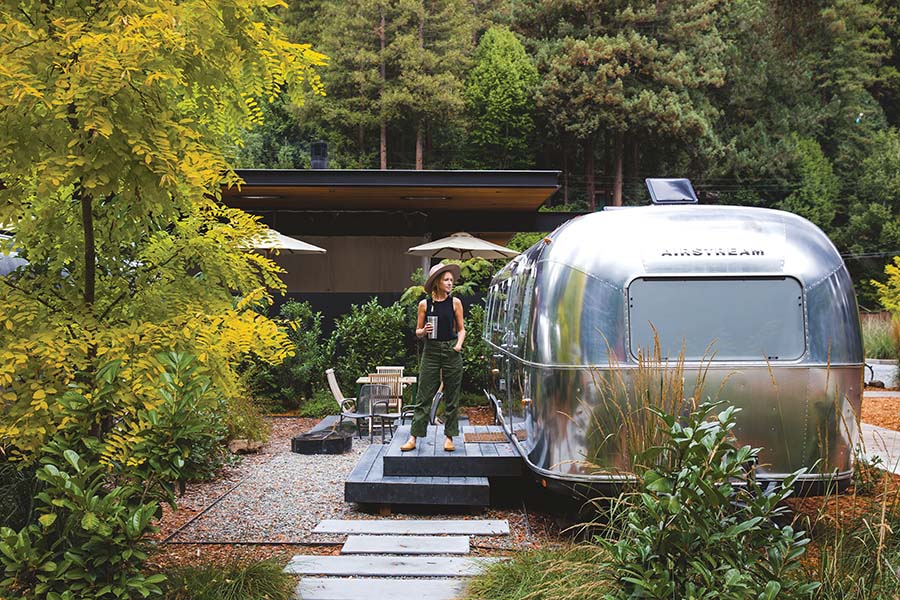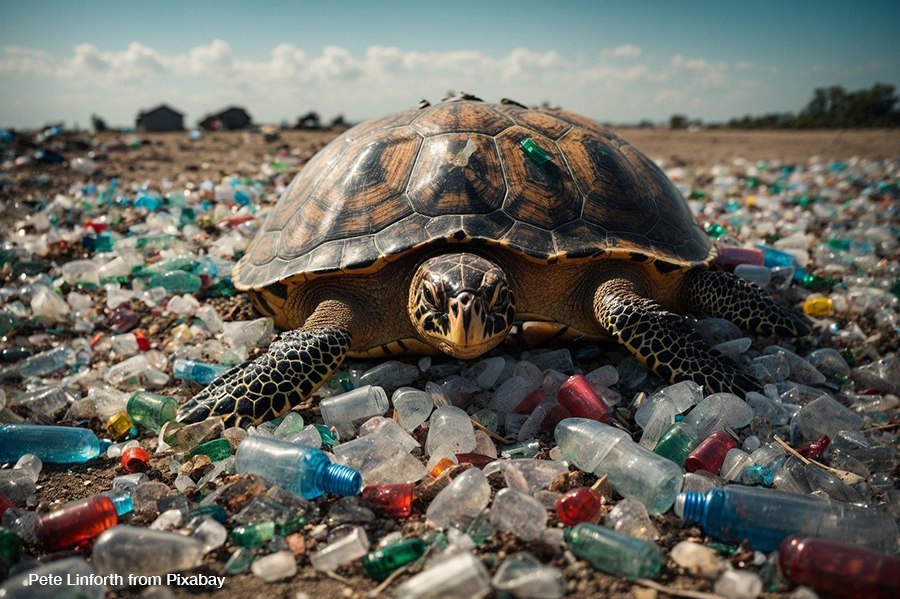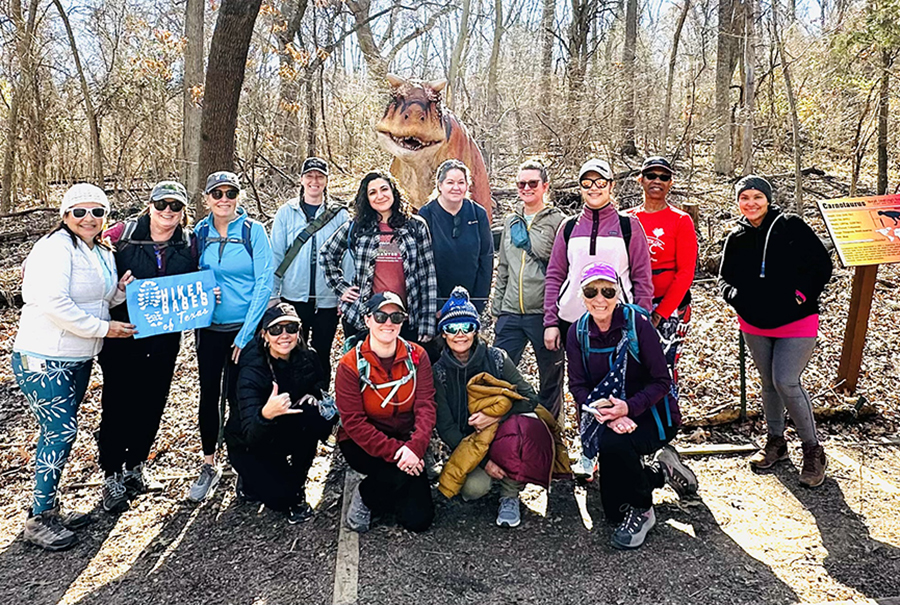By Jennifer M. Aguilar
For many, the term “bee” is a buzzword for “Run!” Others think of an animated film less popular than Ants, a hindrance to stopping to smell the flowers, or a heartbreaking plot twist from the 90’s classic “My Girl.”
Still, no one can deny that bees are some of the hardest workers around. Worker bees are nearly tireless in their attempts to produce honey. And thanks to their pollinating, gardeners and farmers can get great yields from even meager seed plantings.
It’s not just the sweet rewards of the bees labor luring people into the bustling world of bees, though. Whether it’s approached as profession or a hobby, there’s a lot to love about the bustling world of beekeeping.
John Talbert is a legend when it comes to bees. As a beekeeping seminar instructor and the owner of Sabine Creek Honey in Josephine, he’s become well- known within the beekeeping community, both locally and throughout the state. Having served in various positions within the Collin County Hobby Beekeepers Association and the Texas Beekeepers Association, Talbert has spent the last 25 years of his life learning about, working with, and educating others about all things bee-related.
But even he had to get started somewhere. And, as fate would have it, Talbert actually got his start where so many of his students do, at a meeting.
It’s been decades since a former coworker first asked Talbert to attend a beekeepers meeting with him. Talbert agreed, somewhat reluctantly, and as it turns out, that’s all it took. “At the meeting I was hooked, and I have been since then,” he said.
Talbert and his friend, David Earl, decided to go into business together in 1985, growing their beekeeping business from humble beginnings. He said, “When David and I first started, we picked up used equipment… We got a lot of our first items and bees from other beekeepers.”
The two continued developing the business together until Talbert purchased David’s shares in 1993. Then Talbert, a mechanical engineer by trade, retired from Raytheon in 2000, he was able to dedicate even more time to his beekeeping.
Today, what began with two colonies (approximately 80,000 bees) has grown into a 600-colony business, which produces approximately 36,000 pounds (or 3,000 gallons!) of honey each year.
Talbert said “Learning about the bees was a function of attending the meetings for the Collin County Hobby Beekeepers Association that meets in McKinney. In addition we became members of the Texas Beekeepers Association and they have periodic educational meetings.”
“Over the years, I got so involved and expanded my knowledge base to the point that in 2000 I started my own annual 20-hour beekeeping seminar. To date, I have taught more than 500 students through the seminar. It currently is the best-known and most complete seminar in North Texas,” Talbert said.
When Talbert’s not teaching he keeps plenty busy caring for his own bees, harvesting and selling his honey.
Though beekeepers provide special spaces for their bees to live and work, there’s no keeping bees confined to one space.
“I have 15 acres at my home where I keep a number of colonies, but most of my colonies are scattered over other acreage. The average hive will forage over 8,000 acres. Bees do not recognize fences. They fly approximately two miles in all directions.”
Like homing pigeons, the bees have an exceptional sense of direction. They are efficient in returning to their hive and their queen, working year round to increase their honey production.
While the bees are very intuitive and capable of taking care of themselves in many ways, it doesn’t mean the job of beekeeping is easy by any means.
“Most people think that you only work your bees when you harvest the honey. That is not true. They are just like any other kind of livestock. They need care all year long. The environment and the stresses of bees has changed so much in the last 30 years that we have to be real beekeepers and take care of them on a regular basis,” he said.
“All of beekeeping is a series of small functions, but the most physically demanding is the harvest,” Talbert said. Unfortunately for Texans, harvest time is in the summer.
As if the Texas heat wasn’t enough of a challenge, beekeeping requires more clothing than most people want to wear in the summer.
“To properly provide protection for the defensive nature of the bees when you are taking all their stored food, you have to wear protective clothing. That is usually a full set of coveralls, helmet and veil, and long gloves. That is hot! You are working in the full-sun, consequently you sweat a lot.”
Removing the honey isn’t a quick or easy task either. “The boxes of honey are heavy, about 80 pounds.”
Still, Talbert said it’s all worth it. “Seeing the beautiful golden honey flow into the storage container at the bottling time,” Talbert said, is the coolest thing I get to do.
Though harvesting happens only once or twice a year, the shelf life of honey is nearly infinite. So companies like Sabine Creek Honey, with high enough yields, are able to sell their products year round.
Talbert, who works closely with his wife Lavada, sells his honey in small retail outlets and at farmers’ markets throughout North Texas, where savvy shoppers know that local honey not only tastes great but it can be helpful in combatting allergies. “Local honey is considered to be more healthful because it contains many of the pollens that are in the local area and could provide some protection from allergies, ”said Talbert.
To those interested in beekeeping, and even those still baffled as to why someone would volunteer to spend time around bees, Talbert said, “My advice and continuing theme is that you should open your eyes and see all the world around you.”
“To be a beekeeper, you cannot have tunnel vision. You have to widen your horizons. You cannot focus on the bees alone. You have to be aware of the flowers and plants that the bees need, ”he said.
Talbert said more beekeepers are needed. “We need more people that are interested in their environment and how that affects their food production. We have fewer bees and if we have more beekeepers, we will have more bees,” he added.
One student who has taken that advice to heart is Princeton resident Lee Moore. It was Moore’s honey supplier that actually suggested he take up beekeeping as a hobby.
“I was going down to a neighbor who was a beekeeper himself and I’d buy a quart of honey every three weeks. One day he said to me, ‘Lee, you’re my best customer but you need to get some hives of your own instead of buying it like this,’” said Moore.
Moore attended a course through the Collin County Bee Association, one taught by Talbert in fact, which provided students with all the basic supplies and knowledge necessary to get started, and that’s how things began.
“After that I’ve been hooked, and I’m about to go even further into it, making queens and splits, and everything myself.”
It’s been eight years since Moore took that course, but he is quick to admit how much there is yet to learn.
“I’m just an amateur at it; there are so many aspects to it. It’s like the Bible, you start reading and you realize there’s so much you don’t know. There’s so much more to learn,” said Moore. That seems to be part of the fun for him, though.
Each year Moore tries new experiments and techniques for increasing production and protecting his bees from threats. He said his biggest challenge is just keeping the bees healthy.
He’s especially passionate about finding organic and all-natural ways to deal with problems. In fact, Moore believes that pesticides and harsh chemicals are a reason the bee population has decreased in recent years, which is why he works closely with his neighbors and nearby farmers to understand the threats facing his bees.
When people are spraying pesticides on plants nearby, Moore has found ways to give the bees a day off. He actually uses duct tape to seal the opening to their hive, which allows some of the harsh chemicals to dissipate before they come in contact with it on the flowers.
“The older beekeepers will come along and say they could just leave a beehive there, put supers on it, come back and get the honey. Now days we have Varroa mites and small hive beetles.”
Moore currently has 10 hives, and he says one of the perks of having a relatively small operation is his ability to cater his techniques to each hive. Bigger companies often rely on quick fixes, like chemicals, but Moore invests in special equipment, like screens and traps, which helps rid the hives of threats like mites and beetles.
Of course, a lot of beekeeping, like any agricultural endeavor, is accepting the limitations that come along with dealing with Mother Nature.
Rain, for instance, is something that drastically affects the taste of the honey, as well as its availability.
“Out of 8 years, last year was one of the biggest harvests. August rain and cool temperatures caused a lot of fall flowers, so we had a lot of nectar, and luckily I put some supers out there, and they started filling them up,” Moore said.
The taste of that fall honey is wildly different than what he harvests in the summer though. “Depending on what flowers are out, the tastes are different,” He added.
Since bees forage closest to their homes first, even neighbors down the street from one another can end up with honey that looks and tastes completely different than what his bees create.
Horacio Acevedo, the honey supplier turned beekeeping mentor to Moore, lives closer to Lake Lavon than Moore, causing the two men to marvel at the difference between their products.
“My honey is very light, like the flowers around here, which are very light. His is a medium, darker honey. The only thing we can think of is that by the lake a flower grows between the water and the marsh, which must affect his honey,” said Moore.
Unlike many beekeepers, Acevedo’s interest in bees led him to diversify his business, Ace Bees. He and his wife Shirley began beekeeping as a hobby in 1990, and then went on to sell their honey locally. But since 2000 they have focused their attention on non-lethal removal of bees from homes and businesses in Collin County.
The Acevedos try to relocate as many bees as possible to permanent hives at their own family farm, while educating people about the value of bees to our ecosystem.
Talbert and Moore agreed that traditional honeybees are not as aggressive as most people think. In fact, that is an urban myth both would like to dispel.
European honeybees, the kind nearly all North American beekeepers work with, are not aggressive unless they feel threatened. It’s only Africanized bees, sometimes dubbed “killer bees,” that are more naturally aggressive.
Thankfully Africanized bees make up a small percentage of the bees in North Texas, especially those regions where lots of beekeepers are active (and on the lookout for Africanized varieties, which can be somewhat neutralized if mated properly).
“Bees are just doing their thing,” Moore said. “The only reason you get stuck in a garden or something, is if you grab a plant, and he thinks you’re gonna get him. Even if you’re trying to get into their hive, with a European hive you can almost have no suit on at all. They’re just doing their thing.”
Africanized bees, on the other hand, he said “They’ll chase your car if you get within a hundred feet of them. That’s one of the reasons education is so important, so people understand when there’s cause for concern and when bees are relatively harmless.” (The Collin County Hobby Beekeepers Association provides helpful tips at http://cchba.org. The Texas Honeybee Guild is another group dedicated to education. Their Facebook page is filled with great tips and resources. https://www.facebook.com/pages/Texas-Honeybee-Guild/170841869603221.)
Though many people get into beekeeping primarily for the honey, that’s only one of the useful products bees create.
Beeswax makes excellent, clean-burning, and gentle honey-scented candles. But the bees also produce an antiseptic substance called propolis, which is created when fluid from the bee’s glands mixes with tree sap. The bees use it to clean and patch holes in their hives, but doctors continue to study the medicinal value of propolis.
“You can be a beekeeper for the honey, or for the by-products,” Moore said. He’s even dabbled in beeswax candle-making himself.
But bee enthusiasts, like Moore, seem quick to remind people that bees should be valued for more than the products they create.
“Everybody loves honey, and that’s what they think about, but the reason it’s such a major industry for agriculture is because bees pollenate 80 percent of all vegetables that are grown in the United States.”
“If you plant a watermelon patch, and let it go, you’ll get watermelons here and there. But if you put bees nearby, that watermelon patch will have almost 4 times as many melons.”
Like Talbert and Acevedo, Moore also recruits assistance from his significant other, his wife Yvonne.
“It’s sort of cool. My wife says I’m production and she’s marketing. When we give it away, or sell a little bit of it, she finds the bottles she likes and she made the label,” adds Moore.
The Moore’s call their company ‘Red Barn Honey,’ named for the picturesque old barn that stands at the top of the hill near the hives.
“It was fun to bring in some honey, and I was playing with it,” Moore said of his start. “Now, I imagine when I retire I’ll turn it into a small, part-time job – get 50 to 100 hives.” As far as hobbies go, Moore thinks it’s definitely a cool hobby.
To sum it up, it seems beekeepers are not unlike the bees they care for, busy doing their own thing – working hard and reaping the sweet rewards.





















0 Comments